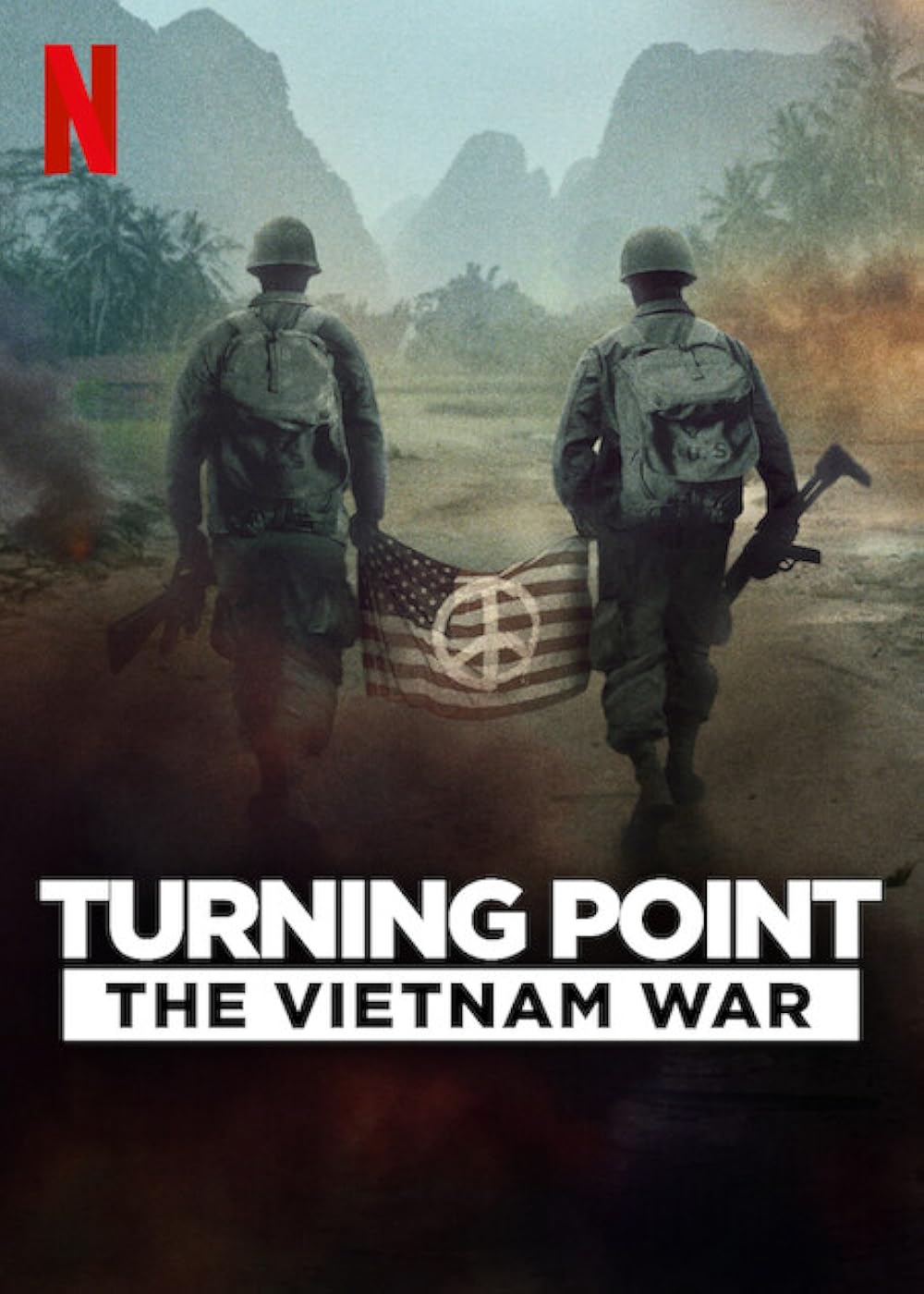At six and a half hours, Turning Point: The Vietnam War, directed by Brian Knappenberger, who is probably best known for the critically beloved 2014 documentary The Internet’s Own Boy: The Story of Aaron Swartz, seems spare by comparison. Whereas the Burns and Novick series tried for a comprehensive and authoritative presentation—the last word on the war, in the classic Ken Burns style—Knappenberger’s approach has the feel of a “greatest hits” documentary, employing powerful and often brutally graphic visuals for a Netflix audience accustomed to documentaries that tell “hidden stories.” It is the third in Netflix’s Turning Point series, all directed by Knappenberger—the first two covered 9/11 and the War on Terror and The Bomb and the Cold War—and it’s certainly on solid ground in seeing the Vietnam War as a major “turning point” for the United States. Among other things, this is a war that shattered Americans’ faith in their government and the belief that their country was a global force for good.
Despite its shorter length, and even with some notable omissions, quite a lot gets packed into the series’ five mostly chronological episodes, with impressive archival footage, tight editing, stylistic graphics, and compelling interviews. Combined, they make for gripping viewing. Like the two earlier PBS series, the Netflix filmmakers draw on firsthand accounts from a variety of American and Vietnamese informants: military veterans, former officials, war correspondents, antiwar activists, and others. With the passage of time, many of the war’s participants are no longer with us, but the series makes good use of archival materials, such as the White House tapes of Lyndon B. Johnson and Richard Nixon, to bring their voices into the story. The filmmakers’ interviews with a number of scholars round things out as they interpret the war’s major developments and help pull the broader narrative together.
Turning Point’s opening episode, called “America Goes to War,” begins, somewhat oddly, in 1961. To be sure, there is a certain logic in this choice. That year, John F. Kennedy had just become president, and it was Kennedy who began the major escalation of U.S. military “advisers” to Vietnam. But most Americans know very little about the war, and many viewers, conditioned by Hollywood to expect combat-heavy stories when they hear the word Vietnam, may not make it past the first episode.

